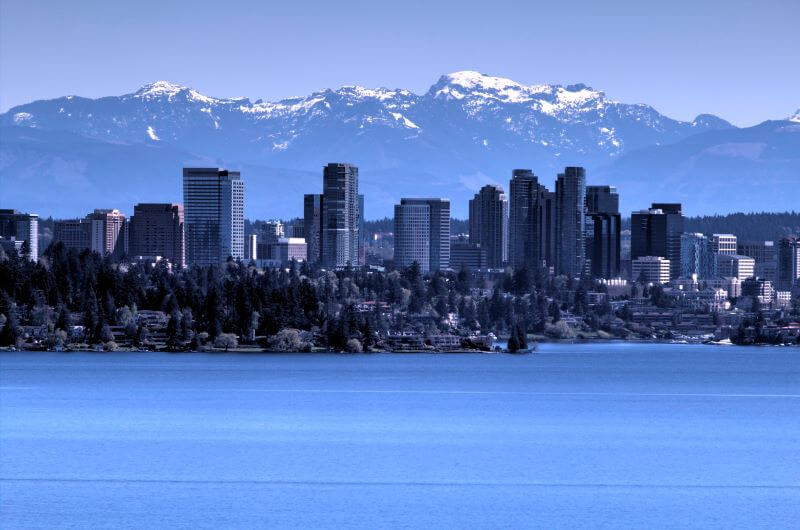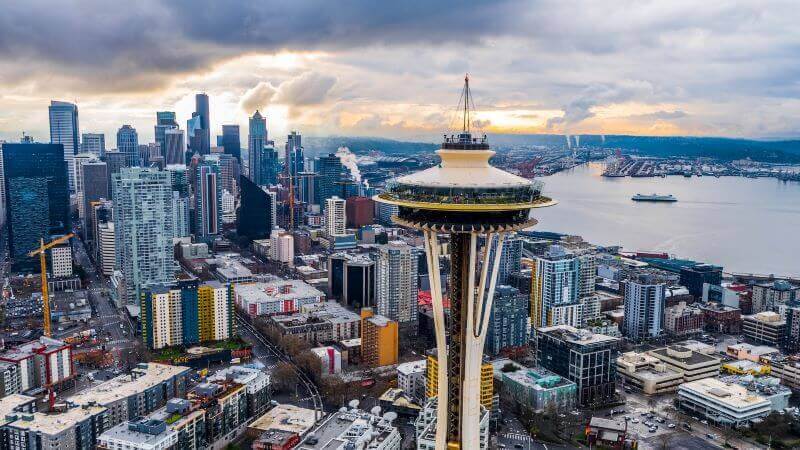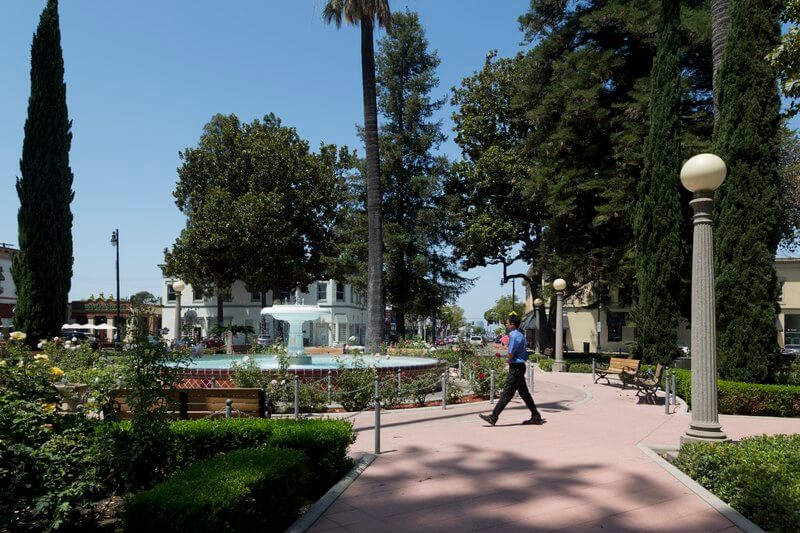
Which U.S. cities support women most through the challenges of motherhood?
With the Pregnant Workers Fairness Act taking effect on June 27, LawnStarter ranked 2023’s Best Cities for New Moms.
We compared the 200 biggest U.S. cities based on seven categories. We looked at average delivery costs, access to lactation spaces, and reproductive rights, among 48 total metrics.
See where your city stands in our ranking below. To learn how we ranked the cities, see our methodology.
Contents
- City Rankings + Infographic
- Top 5 Close Up
- Key Insights
- Ask the Experts
- Methodology
- New Era for New Moms
City Rankings + Infographic
See how each city fared in our ranking:

Top 5 Close Up
Check out the slideshow below for highlights and lowlights on each of our top five cities.
Key Insights
The Gist
East and West Coast cities — such as Portland, Oregon (No. 1), Boston (No. 2), and Bellevue, Washington (No. 3) — finished at the top of our ranking. These cities have great access to maternity and child care resources and offer the best legal protections for breastfeeding, working moms, and reproductive rights.
Although they have abundant resources, Boston and Portland ironically claim the 2nd- and 3rd-smallest populations of new moms, respectively.
Only 14 Southern cities scored in the better half of our ranking, and none cracked the top 50. Tennessee cities Clarksville (No. 191) and Memphis (No. 196), landed in the bottom 10 alongside five Texas cities, such as Killeen (No. 192), Mesquite (No. 199), and Pasadena in last place. These cities have low scores in most categories, which is particularly unfortunate in Killeen and Clarksville — they have the highest populations of new moms per capita.
Standout Stats
Elite Access
The Pacific Northwest is perfect for new moms. Portland, Oregon (No. 1), and Washington state cities Bellevue (No. 3) and Seattle (No. 4) boast high scores across the board. Bellevue claims the greatest access to doulas and the 4th-highest access to family practitioners. Portland offers the 3rd-highest number of mom and parent support groups per capita, while Seattle stands out at No. 3 in park access.
Other PNW cities — Spokane, Washington (No. 12), and Oregon cities Salem (No. 15) and Eugene (No. 17) — are similarly ideal for first-time moms.
Mom-Friendly Mandates
Massachusetts offers first-rate Mom Protections, with paid family leave job security, high wage replacement, and the longest paid family leave policy — 12 weeks — in America. The state also allows parents to take sick leave for child care and has strong breastfeeding laws. Unfortunately, Bay State cities are among the least affordable for new moms, with Springfield (No. 35) the 2nd-most expensive overall.
It Takes a Village
The national child care shortage leaves many parents struggling to find trusty sitters and daycare options. Lincoln, Nebraska (No. 48), offers top access to both child care workers and daycare centers. Brownsville, Texas (No. 194), has the 2nd-highest number of child care workers, followed by Omaha, Nebraska (No. 43). Meanwhile, Tallahassee, Florida (No. 130), and Montgomery, Alabama (No. 180), have the next-best access to daycare centers.
Cradling Comfort
Fort Lauderdale, Florida (No. 150), offers the most lactation spaces per 10,000 new moms, followed by Salt Lake City (No. 30) and Newark, New Jersey (No. 62). However, all three of these cities’ states lag somewhat behind in breastfeeding laws. Mothers in each of these states have the right to breastfeed in public — and most U.S. employees are now protected by the PUMP Act — but they lack specific and extensive legal protections adopted by states like California.
Healthy Cities
With today’s national healthcare shortage, mid-sized cities offer top access to high-quality care for expecting moms. Irvine, California (No. 14), has the best-rated public hospitals, followed by Sioux Falls, South Dakota (No. 50), and Lincoln, Nebraska (No. 48). Moms can find the greatest access to OB/GYNS in Grand Rapids, Michigan (No. 74), while Albuquerque, New Mexico (No. 94), offers the most nurse midwives per 10,000 new moms.
Don’t Break the Bank
Pregnancy and childbirth can bankrupt a new family. Honolulu (No. 39) boasts the most affordable average delivery costs — regardless of insurance coverage — when adjusted by the local average income. It’s more expensive in Florida, which has the most expensive delivery costs with insurance and in Wisconsin with the highest delivery costs without insurance.
Room to Roam Safely
It’s important to be in touch with nature, but not all cities are safely built for adventurous kids. Lincoln, Nebraska (No. 48), Minneapolis (No. 29), and Virginia Beach, Virginia (No. 85), lead the way in Home and Outdoors, boasting impressive park access. Lincoln claims the top access to playgrounds out of all the cities in our ranking.
Sitter Spending
Today, it costs over $300,000 to raise a child, leaving many families strapped for cash when looking for child care options. Parents in Frisco, Texas (No. 53), save on sitters with the most affordable rate, and Jackson, Mississippi (No. 179), claims the lowest annual daycare cost when adjusted by the average household income.
Ask The Experts
You might know what to expect when you’re expecting, but what about post-childbirth?
We reached out to a panel of experts for actionable, real-world guidance for first-time moms. See what wisdom they had to share below.
- What are the three biggest challenges facing new moms today, and what are the solutions?
- What is your best piece of advice for women considering motherhood for the first time today?
- Many new moms struggle with symptoms of anxiety and depression. What are your top three suggestions for getting the support they need?
- What is the best gift for a new mom and why?

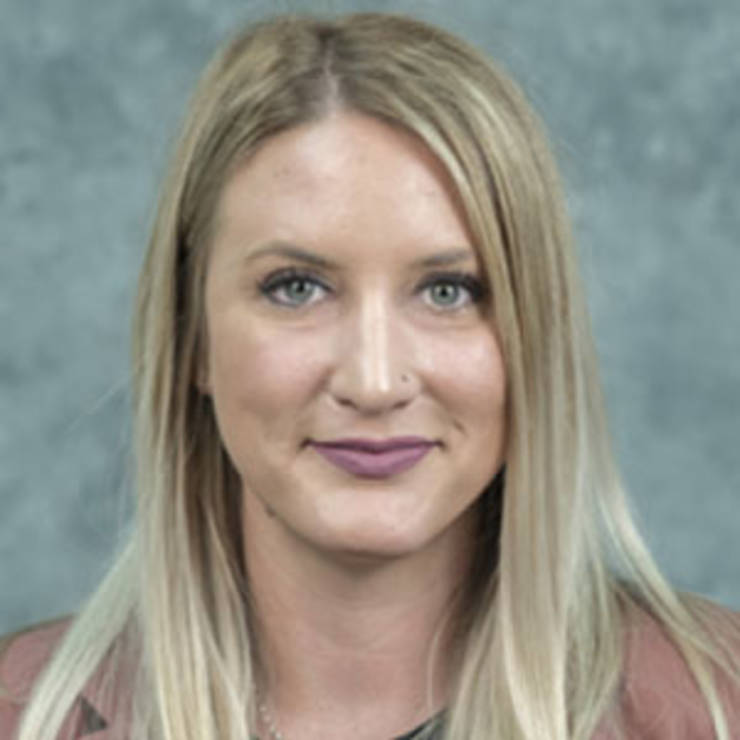
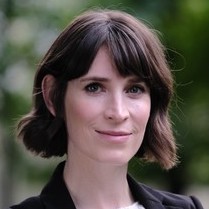

What are the three biggest challenges facing new moms today, and what are the solutions?
Perinatal Mood and Anxiety Disorders (PMADs) are by far the biggest challenge for new and pregnant moms today. Even before the pandemic, at least about 1 in 7 new moms (15%) suffered from postpartum depression (PPD). In women of color and/or living in poverty, the number is much higher (up to 50% of new moms in this group experiences PPD). In Utah, between 2017 and 2019, about 43% of new moms experienced anxiety or depression (before and/or after giving birth) — and this was before the pandemic.
A new study from Canada, in a low-risk sample of mothers who were mostly White, married, and well educated, 41% indicated that they experienced depression, and 72% said they experienced anxiety during pregnancy or within a year after giving birth. This was a self-selected sample, so moms may have opted into the study out of an interest in this topic, but it is safe to say that the pandemic has caused a rise in symptoms of anxiety and depression.
Secondly, there is a constant onslaught of information for new parents to process. Of course, there has been lots of information about the risks of the pandemic and what to do about it in the past year, and this information has often been changing or confusing.
But even before the pandemic, there has been an explosion of information about how to best take care of yourself during pregnancy and how to best raise a child. Some of this is information that is solidly based in research, but there is also a lot of mom and dad blogs (of varying quality) and an avalanche of advertising to new parents. New parents are made to believe that they need a ton of fancy products to make their baby smarter, better developed, and bonded. But the vast majority of these products has no research evidence behind them, and babies do not need specific toys for optimal development.
Thirdly, we have a birth culture that often leaves moms feeling disempowered, emotionally unsupported, and alone. We tend to see birth as portrayed on TV: surrounded by panic, excruciating pain, and potential danger. While pregnancy and birth do place a huge burden on a woman’s body, complications are still more exception than rule. We do need to have highly specialized doctors, in case there are risk factors or emergencies.
But research shows that interventions in normal, low-risk births (e.g., inductions) tend to lead to more interventions, which tend to go along with stress. About 9% of mothers develop postpartum PTSD. This is often related to emergency situations but also is more likely when the mother is not told what is going on, why procedures are done, and what (if any) choices she has.
After giving birth, parents are expected to go home from the hospital and figure out how to care for a newborn and for the mom’s well-being without support or adequate parental leave. Other countries, such as The Netherlands and Australia, have nurses who come to your home to help the family adapt after the huge event of giving birth. All of these challenges are even more likely in women of color, women who are younger or less educated, or women living in poverty.
What we can do on a societal level is to improve policies for parental leave, provide more support for parents around the time of birth (such as home visiting programs), and support high-quality childcare. Social support from friends, family, and fellow parents also greatly reduces risk.
On an individual level, it helps to be informed and to know that you have choices (e.g., about how to give birth, if it is not high-risk). Be sure to go to your doctor for check-ups, and be sure to have them check in with you about your emotional well-being. Moderate exercise and mindfulness practices (like yoga or meditation) have been proven to reduce depression and anxiety. Pre-birth relaxation and visualization exercises also help reduce stress. Lastly, reach out for mental health support when you need it. There are lots of expert professionals out there who love to help.
What is your best piece of advice for women considering motherhood for the first time today?
- Follow your own intuition, and trust yourself. The vast majority of babies are born healthy, and every child has their own strengths, even as a tiny baby.
- Be informed, but trust the process once you decide you are ready for a baby. Use information wisely, but do not let all the news overwhelm you.
- Accept help whenever you can — it does take a village to raise a child. You are worthy of support, and you cannot take care of a baby very well if you do not take care of yourself, too.
- Know that you matter!
What is the best gift for a new mom and why?
Let her know she is loved. Most new moms will appreciate it if she feels you care about her.
Offer her some time away from baby, a sensory experience (like a soft blanket or some time in nature), or just to spend quality time with you. All moms are different, so you could offer several options and have her choose something that would comfort her.
Listen to her. The most important thing is that she feels loved and cared for and that she realizes that her well-being will help her baby, too.

What are the three biggest challenges facing new moms today, and what are the solutions?
Welcoming a new baby is always a challenge, and during the pandemic, especially so. I think the three biggest challenges today are finding consistent social support, finding reliable child care, and supporting positive mental health.
To be clear, I don’t think these are new challenges. These have always been challenges for new moms. But the pandemic has really amplified these challenges. I think finding a child care situation that meets the families’ needs can really help address all three of these challenges.
What is your best piece of advice for women considering motherhood for the first time today?
Enjoy it. The pandemic may have presented challenges, but it hasn’t taken away the joyful experiences.
For those considering motherhood, I hope the pandemic is not the factor that keeps them from becoming a parent. In an ongoing study we’re conducting, we found that 58% of currently pregnant individuals said they delayed pregnancy because of the pandemic.
While I think it is definitely worth planning ahead a little more to handle the additional challenges, I hope that people thinking about becoming a new mom don’t let the pandemic discourage them.

What are the three biggest challenges facing new moms today, and what are the solutions?
One of the biggest challenges facing new moms is the lack of paid parental leave in the U.S. This can lead to insufficient time for moms to recover after childbirth; increased stress for families who are trying to ensure job stability while simultaneously finding suitable infant care; and premature cessation of breastfeeding. Thankfully, the political willpower to expand paid family-leave benefits seems to be growing.
The second challenge is identifying strategies to balance work and family obligations. Women often take on most housework and domestic duties, and the pandemic has clearly exacerbated these patterns. For two-parent households, women should work with their partners to voice challenges and come up with equitable solutions, which might include outsourcing some domestic labor.
The third challenge concerns the health of moms after they give birth. Infancy can be a rewarding but challenging period, especially when sleep becomes compromised. Moms tend to put themselves last when it comes to their health and well-being. Any small changes new moms can make to prioritize their needs can go a long way. And if moms feel guilty for engaging in self care, they should remind themselves that doing so makes them a better parent.
What is your best piece of advice for women considering motherhood for the first time today?
One of the best pieces of advice I received is that there’s never a perfect time to become a parent. I think most people think that to start a family they need to have all their ducks in a row, so to speak. What really matters at the end of the day, though, is that you are able to provide a child with a loving home.
Methodology
First, we determined the factors (metrics) that are most relevant to rank the Best Cities for New Moms. We then assigned a weight to each factor based on its importance and grouped those factors into seven categories: Maternity Care, Child Care, Mom Protections, Affordability, Social Support, Socioeconomics, and Home and Outdoors. The categories, factors, and their weights are listed in the table below.
For each of the 200 biggest U.S. cities, we then gathered data on each factor from the sources listed below the table.
Finally, we calculated scores (out of 100 points) for each city to determine its rank in each factor, each category, and overall. A city’s Overall Score is the average of its scores across all factors and categories. The highest Overall Score ranked “Best” (No. 1) and the lowest “Worst” (No. 200). Note: The “Worst” among individual factors may not be No. 200 due to ties.
Sources: AreaVibes, Care.com, Child Care Aware of America, County Health Rankings & Roadmaps, DoulaMatch.net, Federal Housing Finance Agency, Healthgrades, LawnStarter Internal Data, Mamava, Meetup, National Center for Children in Poverty, National Highway Traffic Safety Administration, NeighborhoodScout, PolicyScout, Status of Women in The States, Trust for Public Land, U.S. Bureau of Labor Statistics, U.S. Census Bureau, U.S. Centers for Medicaid & Medicare Services, U.S. Environmental Protection Agency, U.S. News, Walk Score, and Yelp
New Era for New Moms
Motherhood is both a rewarding and challenging role, but balancing responsibilities is becoming increasingly difficult for working mothers.
The percentage of working moms in America has peaked for the first time since 2019, but many are still working from home — or not working at all — because they don’t have access to affordable child care. Additionally, after the expanded child tax credit ended, rates of childhood poverty spiked by 41%.
Thankfully, Congress is considering bringing the credit back permanently through the American Family Act. The recent PUMP for Nursing Mothers Act and upcoming Pregnant Workers Fairness Act add further legal protections so pregnant employees and new moms can work with the proper accommodations and without discrimination.
Hopefully, these waves of legal protections and initiatives targeting new moms will leave first-time moms with a bit less to worry about as they begin the journey of parenthood.
PS: If you’re a new mom, the last thing you have time for is mowing your yard. Hire a local LawnStarter pro to take care of all your lawn and landscaping needs while you spend precious time with your baby.
Media Resources
- High-resolution image of infographic
- High-resolution images of cities
- 2022’s Best Cities for New Moms ranking results
Main Photo Credit: Shutterstock


